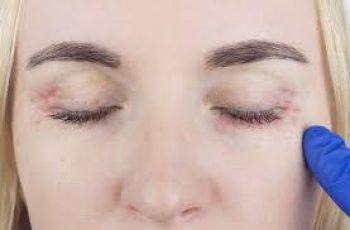
Which anti-pollution mask is best?
With anti-pollution skincare sales up over 75% in the last year, we all know the impact pollution has on our skin and we’re ready to take action! Many of us have already incorporated anti-pollution products into our skincare routines, but for those who haven’t yet, using an anti-pollution mask would be the next step to detoxifying and restoring balance to your skin. But which anti-pollution mask is best? Let’s find out!
What is anti-pollution skincare?
Anti-pollution skincare has been rising in popularity in recent years. With global warming and pollution being hot topics for many obvious reasons, we’re now turning our attention to how all of these environmental aggressors can affect the skin. We have a whole blog post on how pollution affects your skin and how to combat it to help you learn more.
The constant presence of tiny particles in the air, especially in busy cities, not only settles on the skin but also gets deep into the pores, causing premature aging, fine lines and wrinkles, dullness, redness, irritation, and rashes like blackheads, all linked to skin pollution. Using a skincare routine with plenty of antioxidants like Vitamin C can prevent free radical damage. There are also many natural alternatives to antioxidant ingredients, such as activated charcoal and rose water.
How can you prevent skin pollution?
To prevent skin pollution, it’s best to make sure your skincare routine contains a variety of ingredients that can address any issues and protect the skin’s protective skin barrier.
Here’s an example of a simple skincare routine that benefits the skin and includes eco-friendly properties:
Make sure to cleanse your skin every night to remove dirt, debris, and all traces of makeup before going to bed or applying other products. Not only does this help subsequent products penetrate the skin more effectively, but it also removes any skin-damaging particles that can cause problems from acne to premature aging if not treated promptly.
Use an antioxidant-rich serum. Serums penetrate deeper into the skin than moisturizers and have impressive results in counteracting the damage caused by pollution.
Use SPF every day. Sunscreen protects against UV damage, which can cause collagen breakdown and pigmentation on the surface of the skin.
Apply a facial mask once a week. Since the formula is effective and rich in anti-pollution ingredients, it helps the skin fight free radicals caused by pollution and other daily stressors.
This is a very simple routine to fight pollution. For more information, refer to the blog mentioned earlier. However, following this routine, no matter how simple, is believed to work wonders in healing the skin, correcting damage, and preventing further damage.
How do anti-pollution masks work?
Anti-pollution masks are best used around 2-3 times a week. Depending on where you live or work, you may need to use them more often. Anti-pollution mask formulas usually contain a lot of antioxidant ingredients:
Activated charcoal
Algae
Vitamin C
Vitamin E
Sea salt minerals
Vitamin A (Retinol)
All of the above ingredients effectively neutralize free radicals and are very effective in limiting damage to all signs of aging, uneven skin tone, and collagen deficiency that causes the skin to lose its firmness.
Here is the best routine to follow when using an anti-pollution mask:
Cleanse your skin from bacteria, dirt, and makeup residue.
Use a chemical or physical exfoliant to remove the buildup of dead skin cells.
Apply a skincare serum to the skin and allow enough time for it to be fully absorbed into the skin.
Apply a generous amount of the anti-pollution mask.
This procedure is recommended if the mask you are using is a cream-based overnight formula that you don’t need to remove and keep on using. It’s best to use it at night so that your skin has a chance to fully benefit from the mask without being exposed to environmental influences.
Can you wear a mask while sleeping?
This depends on the mask’s formula, as not all masks are meant to be worn while sleeping. When a mask is called a night mask or sleeping mask, it’s usually meant to be used while sleeping. They usually have a cream or gel-like consistency and are applied generously to the entire face, avoiding the mouth and eye areas. You can wipe off any excess with a cloth or leave it on overnight. In the morning, you’ll find your skin hydrated, plumped, detoxified, and glowing with a healthy glow.
Sheet masks may feel safe to use while sleeping, but they dry out once the serum is fully absorbed into the skin, and if you leave them on for too long, they can actually strip your face of moisture. The same is true for clay masks. Once they’re dry, it’s important to wipe them off with warm water and a damp towel to prevent your skin from drying out and losing essential oils and moisture.
Therefore, finding the best anti-pollution mask for your skin’s needs will be easier than you initially expected, especially with the growing popularity of anti-pollution skincare products. The most important thing to remember is to choose a product that contains highly effective antioxidants and ensure that your daily use helps the anti-pollution mask to work optimally and keep your skin healthy.


